MITOXANTRONE - INJECTION
PHONETIC PRONUNCIATION: (my-toe-ZAN-trone)
COMMON BRAND NAME(S): Novantrone
GENERIC NAME(S): mitoxantrone HCl
Uses
USES: Mitoxantrone is used to treat leukemia and other cancers. It is also used to treat multiple sclerosis. It belongs to a class of drugs known as anthracenediones and works by slowing or stopping the growth of certain cells (including cancer cells and cells that affect the body's natural defenses).
How to use MITOXANTRONE - INJECTION
HOW TO USE: Read the Medication Guide provided by your pharmacist before you start receiving mitoxantrone and each time you get a refill. If you have any questions, ask your doctor or pharmacist. This medication is given by injection into a vein by a health care professional as directed by your doctor. Dosage is based on your medical condition, body size, and response to treatment. If this medication touches your skin, immediately wash the area well with soap and water. If this medication gets in your eye, open the eyelid and flush with water for 15 minutes, then seek immediate medical attention.
Side Effects
Precautions
Interactions
Overdose
Images
Reviews
Faq for MITOXANTRONE - INJECTION
Mitoxantrone is a medication used to treat certain types of cancer, such as leukemia and prostate cancer. It is given as an injection into a vein.
Mitoxantrone works by interfering with the growth and spread of cancer cells in the body. It is a type of chemotherapy drug known as an antineoplastic or cytotoxic agent.
The common side effects of Mitoxantrone include nausea, vomiting, hair loss, diarrhea, dizziness, fatigue, and changes in urine color. It may also cause a temporary decrease in blood cell counts.
Mitoxantrone is administered as an intravenous (IV) injection by a healthcare professional in a hospital or clinic setting. The dosage and frequency of treatment will depend on the specific condition being treated.
The time it takes for Mitoxantrone to work varies depending on the individual and the type of cancer being treated. It may take several weeks or months to see the full effects of the medication.
Mitoxantrone should not be used by individuals with a known allergy to the drug or similar chemotherapy agents. It is also important to inform your healthcare provider about any other medications or medical conditions you have before starting treatment with Mitoxantrone.
Mitoxantrone is not recommended for use during pregnancy as it may harm the unborn baby. It is also not recommended for use while breastfeeding, as it may pass into breast milk and harm the nursing infant. Consult your healthcare provider for more information.
If you miss a dose of Mitoxantrone, it is important to contact your healthcare provider for further instructions. It is not recommended to double the dose to make up for a missed dose.
Mitoxantrone should be stored at room temperature, away from light and moisture. It should be kept out of the reach of children and properly disposed of according to local regulations.
Warning
WARNING: Mitoxantrone must be given only by injection into a vein. Do not give by injection into a muscle, under the skin, or into the spinal cord. If this medication accidentally leaks into the skin/muscle around the injection site, it may cause severe damage. Tell your doctor right away if you notice redness, pain, or swelling at or near the injection site. This medication may rarely cause serious (rarely fatal) heart problems (including heart failure). This effect may occur during treatment or months to years after treatment is completed. The risk of heart problems is affected by your dose, medical history (including previous heart disease, radiation treatment to the chest area, or if you have MS-multiple sclerosis), and previous use of this and other drugs (including doxorubicin or daunorubicin). Tell your doctor right away if you notice symptoms such as irregular heartbeat, shortness of breath, swelling ankles/feet, unusual tiredness, or unusual/sudden weight gain. Very rarely, people who are treated with this type of medication have developed new cancers (e.g., secondary leukemia). The risk may be increased when this medication is given with certain anti-cancer drugs or radiation treatment. Consult your doctor for more details. Laboratory and/or medical tests (e.g., complete blood count, heart/liver function tests, ECG) should be performed before starting treatment and periodically to monitor your progress or check for side effects. Consult your doctor for more details.
Disclaimer
IMPORTANT: HOW TO USE THIS INFORMATION: This is a summary and does NOT have all possible information about this product. This information does not assure that this product is safe, effective, or appropriate for you. This information is not individual medical advice and does not substitute for the advice of your health care professional. Always ask your health care professional for complete information about this product and your specific health needs.
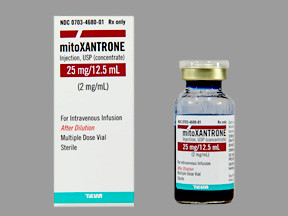
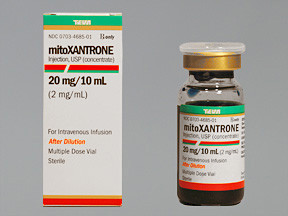
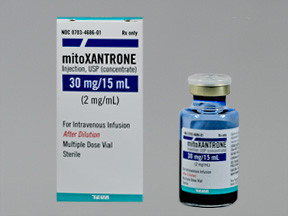
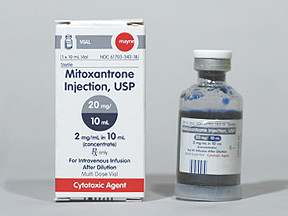
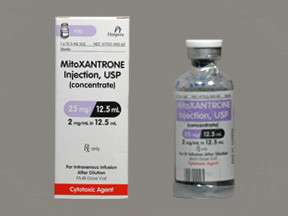
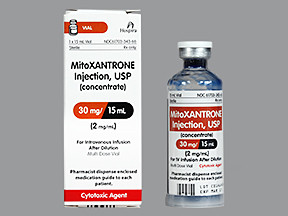
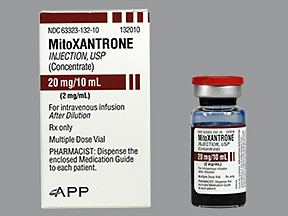
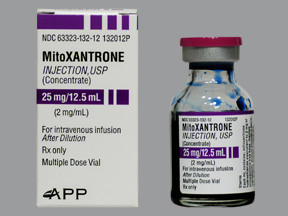

No Reviews Yet